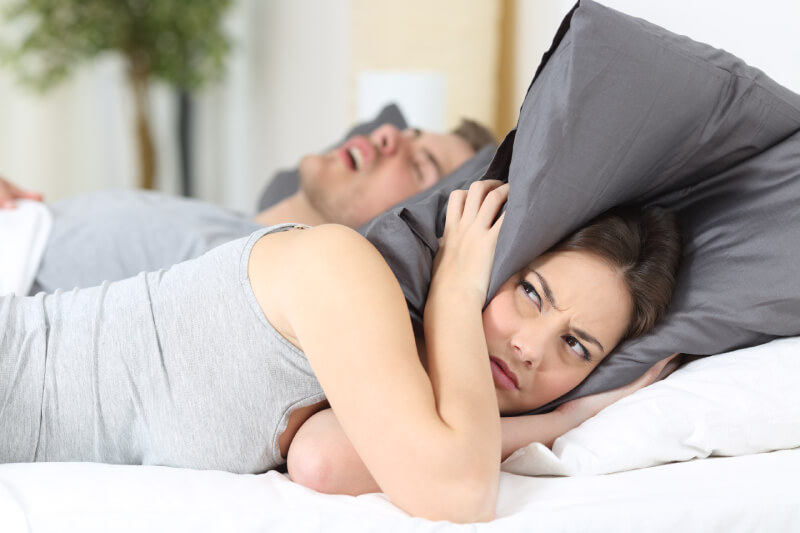Sleep apnea is a sleep disorder that occurs when the upper airway becomes repeatedly blocked during sleep, reducing or completely stopping airflow. The most common type of sleep apnea is called obstructive sleep apnea (OSA).
Obstructive sleep apnea can interfere with one’s regular activities due to disrupted sleep. Untreated sleep apnea can impact various other aspects of your overall health as well.
Causes linked to this vary but may include the following:
- Obesity
- Large tonsils
- Sleeping on your back
- Endocrine disorders like hypothyroidism
- Neuromuscular disorders
- Heart or kidney failure
- Genetic syndromes like cleft lip or cleft palate
Treatment for sleep apnea may include improving overall health habits, like exercising and eating correctly to promote weight loss, using a CPAP machine, or using oral appliances to correct your sleeping position. Not attending to these issues promptly may cause other health concerns, such as heart disease or high blood pressure.
Symptoms of sleep apnea include the following:
- Loud snoring
- Waking up constantly during sleep
- Interrupted breathing
- Feeling very tired, even after sleeping 6-8 hours
- Headaches
- Finding it hard to focus on tasks during the day
To determine if you have sleep apnea, your primary care physician will ask some questions to review your sleep pattern. You may be referred to a specialist sleep clinic for tests. These tests involve wearing tracking devices during your sleep to check your breathing and heartbeat.
Depending on your situation, you may need to stay at the clinic overnight for observation or take the tracking devices home to monitor your sleep.
After the test results are available, your physician will determine whether you have sleep apnea or not and develop a personalized treatment plan.
The following factors can increase the risk of developing sleep apnea:
- Obesity
- Age
- Smoking
- Having other family members with sleep apnea
- Genetics (having a large neck)
Treatment for sleep apnea varies depending on your specific case. Once your physician has reviewed your sleeping pattern and tests, treatment may include one or more of the following options:
- Making lifestyle changes: Eating healthy and exercising can significantly improve sleep apnea symptoms.
- Using a CPAP machine: A CPAP machine prevents airways from getting too narrow, which can improve your breathing pattern during your sleep.
- Mandibular device: Custom dental guards are made of plastic and designed to fit the exact shape of your teeth. They can help to hold your airways open as you sleep.
- Tonsil surgery: Removing your tonsils could help with airway obstruction.
Sleep apnea could lead up to other health complications, even in children. These issues may include the following:
- High blood pressure
- Higher chances of having a stroke
- Diabetes
- Heart disease
- Depression and anxiety
- Difficulty with routine activities due to fatigue
Good sleep habits will not get rid of your sleep apnea but can help you develop healthy sleep patterns. These include the following:
- Maintain a healthy diet
- Exercise regularly
- Go to bed and wake up at the same time each day
- Avoid using your phone at least an hour before bedtime
- Make sure your bedroom is dark and quiet
- Avoid eating an hour before bedtime
- Maintain a good sleeping position
For individuals with sleep apnea, the best sleeping position is on your side, with your spine positioned as straight as possible. Sleeping on your stomach can also help with breathing, but you need to be cautious about stomach sleeping as it can put increased stress on your spinal cord.


